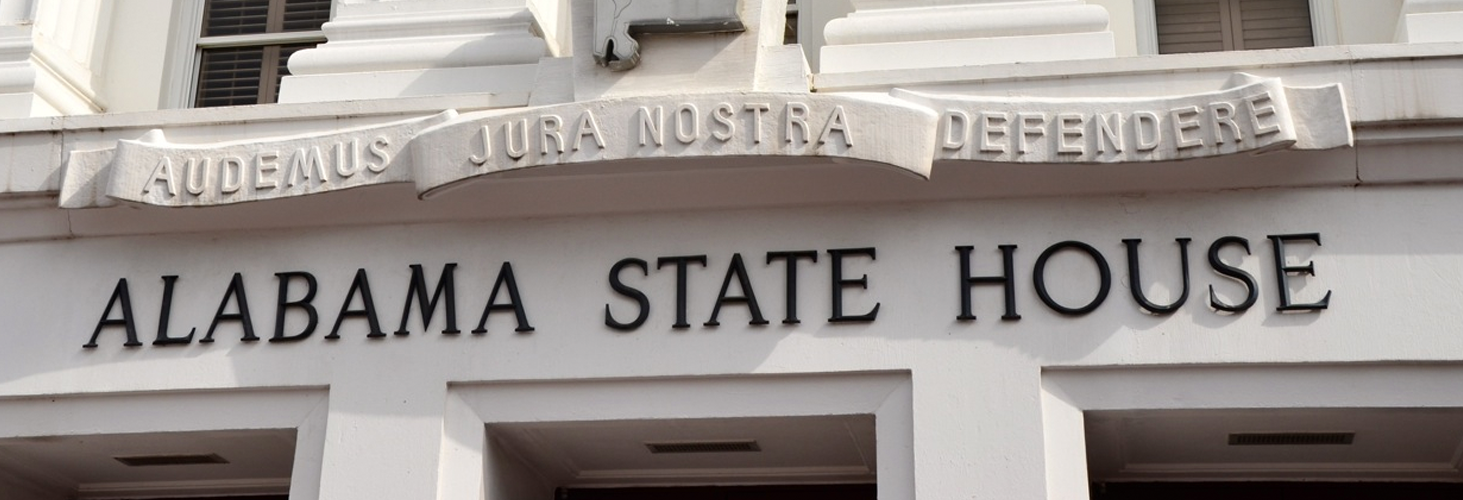By Brandon Moseley
Alabama Political Reporter
Thursday, August 25, the Alabama House of Representatives voted to amend Alabama’s state Constitution to allow a lottery. Senate Bill 3, sponsored by Senator Jim McClendon (R-Springville), has been sent back to the Senate to see if they concur with the many house amendments to the Senate bill.
State Representative Ed Henry (R-Hartselle) said of the Senate version of SB3, “The bill is flawed and needs a lot of work to secure the future of our conservative values, in a state where gambling interest are hungry to control us. Gambling lobbyist are working diligently to manipulate our constitution for their benefit. It is our responsibility to give the people of Alabama, who only get a ‘yes’ or ‘no’ vote, the cleanest proposal possible. Unfortunately that requires time and effort.”
Chairman of the House Economic Development and Tourism Committee Alan Harper (R-Northport) carried the bill through eleven hours of debate. Rep. Alvin Holmes (D-Montgomery) played a critical role in shepherding the Republican lottery bill through the legislature.
Opponents of the bill attempted to make the bill less palatable to passage by adding amendments to the bill and dragging the process out. Supporters had to accept some amendments in order to pick up a few votes here and there.
State Senator Paul Bussman (R-Cullman) said, “I am watching the ugliness of politics as the pressure mounts on the lottery ‘no’ votes. Not amendments to make the bill a good bill. The question now is ‘What can we do to move you to a ‘yes’ vote? Roads, etc.’ We could make tremendous strides if this energy level was put on Republican issues like budget reform and fiscal responsibility.”
State Representative Phil Williams (R-Huntsville) said, “It is becoming obvious that there are forces in play that are pushing us to pass a flawed bill. It seems the Governor is cutting deals right and left.”
State Representative John Rogers (D-Birmingham) successfully added an amendment that would ensure racial and geographic diversity on the lottery commission.
State Representative Richard Lindsey (D-Centre) successfully added an amendment which would have used one percent of the funds for volunteer fire departments who have been severely cut in the General Fund budget in recent years.
If the Governor’s projections are correct the state would make about $220 million after prizes and administration. Under the last version of SB3 that the Alabama Political Reporter has seen: $100 million would go to the troubled Alabama Medicaid program. Ten percent ($22 million in this example) would go to the education trust fund (ETF). One percent of the SGF directed money (almost $2 million in this example) would go to the volunteer fire departments under existing criteria by the Alabama Forestry Commission. The remainder ($96 million in this example) would go into the regular budgeting process in the SGF.
State Representative Wil Ainsworth (R-Guntersville) introduced an amendment that would have removed all of the earmarks in the bill. That failed.
Rep. Ainsworth said the people of Alabama don’t know what is in this. I don’t know what is in this because the enabling legislation has not been written yet.
Efforts by State Representatives Christopher John England (D-Tuscaloosa), Barbara Boyd (D-Anniston), and State McMillan (R-Orange Beach) all attempted to require the Governor to get approval from the legislature before entering into a compact with the Poarch Creek Indians. Those amendments were voted down at least four separate times. Rep. John Knight (D-Montgomery) warned that by expanding to class III gaming in the state with the lottery, the Indians could do the same thing with a compact with the Governor and the legislature has no say in the matter under current law.
At one point, State Representative Jack Williams (R-Vestavia) introduced a lottery substitute amendment that would have also raised gas taxes, merged the state general fund with the education trust fund, and raised property taxes across the state to a minimum of twenty mills. The House swiftly tabled that idea. A much simpler substitute introduced by Rep. Henry was also tabled.
Efforts by Minority Leader Craig Ford (D-Gadsden), Rep. John Rogers, and other Democrats to also allow a vote on casino gambling all failed.
An amendment by state Representative Connie Rowe (R-Jasper) to define “lottery” as being paper only eventually passed.
Rep. Ed Henry’s amendment to outlaw scratch off games failed.
State Representative Rich Wingo (R-Tuscaloosa County) said that gambling was a tax on the poor and urged a no vote. Wingo said that 86 percent of lottery players are at 150 percent of the poverty line or less.
State Representative Kerry Rich (R-Albertville) said that the poor are going to waste their money on something and this money is going for Medicaid which the poor use.
Rep. Barry Forte (D-Eufaula) said, “A lot of people are talking about poor folks. I have been poor my whole life and the lottery did not have anything to do with that.”
Three attempts to cloture debate were defeated until finally, lottery supporters were able to force a vote around 10:30 p.m. That vote ended in defeat of the measure. A constitutional amendment requires a three fifths majority of the representatives who are present. To pass it needed 63 votes. SB3 only got 61 votes, thus the bill was rejected; but under the very arcane rules of the House, the leadership and bill’s sponsor can have a motion to reconsider one time within 24 hours of a defeat. Chairman Harper and the Speaker of the House Mac McCutcheon (R-Madison) exercised that option after 11:00 pm. On the second vote, SB3 passed 64 to 35. The bill now goes back to the Senate for concurrence. If they do not concur with amendments made, it goes to a conference committee.
Both the House and the Senate had begun the Friday legislative day after midnight and were in session at press time.
Alabama Secretary of State John Merrill told reporters that the deadline to be on the November 8 ballot was Wednesday night at 11:59 pm and that the 76 day rule was a hard and fast deadline. Rep. Harper said that the House was working under the assumption that the deadline is tonight (Friday, August 26).



















































